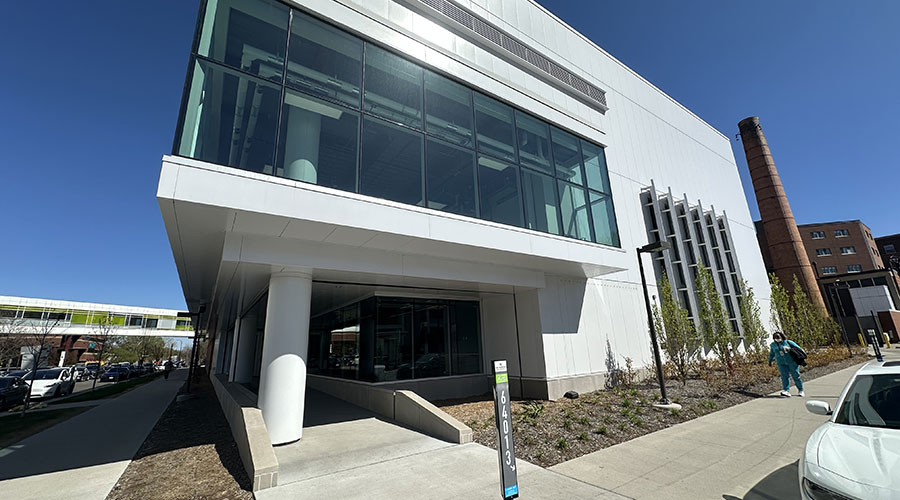Three Managers Discuss Savvy, Successful Outsourcing Strategies
By Chris Matt, Managing Editor - Print & E-Media
*Steve Spencer is a facilities specialist with State Farm Insurance Co., in Bloomington, Ill.
*David Gray is assistant vice president of facilities services with Middle Tennessee State University in Murfreesboro, Tenn.
*Fran Foster is director of school plant services with Virginia Beach (Va.) Public Schools.
Outsourcing. The word alone evokes a host of emotions among maintenance and engineering managers. But regardless of the way managers feel about outsourcing, the topic is unavoidable. In this roundtable, three managers address questions surrounding outsourcing and its impact on their departments and facilities.
Question: How is the recession impacting your decision to contract service providers for maintenance and engineering activities?
Foster: We spend quite a bit of money for our school division, it's over $2 million, just to contract out various things. So what we're doing right now is looking at what we can do versus what we are contracting out. We've been looking at this for a short while. If the revenue starts dropping, then everyone starts looking at where we can reduce to make ends meet.
Spencer: It really hasn't impacted us a great deal on a daily basis, although we are in the process of doing an evaluation of our entire maintenance process. We were already in the process of doing that before the economy did what it did. It's just a situation where we're trying to make sure the model we have is still practical, or if we need to alter it.
Gray: At the university here, we are a believer in outsourcing. We have outsourced probably 97 percent of our custodial, and that's been done for nine years. (Many) of our other outsourcing things we've done because we haven't been able to keep up with the technology. We're in a poor state, and we don't have a lot of monies to make everything work. We're trying to find the most economical way to get it done. We hire very few in-house people. We try to outsource as much as we can when we have an overload of certain types of work.
Question: What are the primary reasons you look to service providers, rather than use in-house staff?
Foster: You have to look at what (technology) is coming into the building, and do we have the expertise to either handle it now or, if we want to handle it, what additional training or expertise is required? We're looking at everything that comes in, but it really has to be based on who you have in-house and the qualifications they have and the time they have available.
Spencer: We've got a lot of highly trained individuals in our maintenance departments and administrative services. What we're trying to do is outsource the things that will allow them to use their expertise for the best productivity. Why should I have a guy who is a licensed electrician changing light bulbs, for instance? He should be managing a project for electrical repair or doing major repair on a terminal box, rather than changing a light bulb.
Question: What are the most important elements you need to consider in choosing a service provider?
Gray: First of all, it has to be economically sound. If I had one thing to tell someone that's considering outsourcing, it is make sure it's economically sound, that it's the right decision when it comes to the numbers. It's hard to hang your hat on something that is not as concrete as the economics. Tennessee is a poor state, and we're a poor school, so the economics talk loud.
Foster: We go through an RFP (request for proposal) process if we're choosing one. We use the RFP because price is one thing, but you also take into consideration everything else that comes into play, (including) whether the company has been around a long time, the reputation they have, the number of trained employees they have. Just the history that comes with the provider of a service is extremely important. It needs to be someone that really has a reputation out in the local market.
Spencer: We can usually utilize a process we call contractor qualification when we bid out. It's a due-diligence program. We ask for a large amount of information on those companies and look at different aspects, like their human resources, how do they train, what their turnover rate is, their professionalism. We also look at their service-delivery plan, their quality-assurance aspects, and their management philosophy.
Question: Is outtasking — hiring contractors for more specialized maintenance tasks — becoming more prevalent as equipment technology advances and maintenance becomes more complex?
Spencer: We've done that for a long time. With new technology, there's probably going to be some outtasking involved, especially if it's something we don't have anyone trained to deal with. We may have an expert at corporate who can handle (specialized tasks) and deal with it. But are we going to have that in every one of our offices out in the field? Probably not. So that's where outtasking might come into play.
Foster: Expertise in a specialized area (is the key consideration). Something like relamping poles on athletic fields. I don't want anybody to climb up that pole. We'd have to go rent the crane that would get you up there. Something as small as scoreboards, we've got a contractor that does that; they're experts in it. Fire-extinguisher inspections. Hood-system inspections and maintenance. We look at the safety aspect and the potential liability.
Gray: The more technology that comes into our classrooms, we don't have the expertise to take care of some of this equipment. We encourage academic departments to get service contracts to maintain that equipment. We do not have the expertise and are not planning on hiring the expertise to take care of that technology. They have to come up with their plan. We call it total cost of ownership. If they buy it, they need to take care of it.
Question: How do you ensure service providers follow through on the level of performance agreed upon in the contract?
Foster: Each one of the different things we contract out, we have a mechanism for checking it. Some of the larger things, like chillers and fire-alarm systems, we are on top of that as much as we possibly can. We just don't have enough personnel to be there every time one of these repairs are done. If we start seeing problems, we pull them in and talk to them about the issues we've seen. If it continues, we don't renew the contract. We hold our contractors to a certain level of expertise, and we've got high expectations for them.
Spencer: That is our contract-management process. We have a contract-management process where we train our people on what they're supposed to do. (For housekeeping and grounds) they've got a contract; they've got frequency sheets. That's a living document. They're supposed to make sure that, when we pay for services, that we get those things. They perform regular, monthly inspections in the building to make sure everything is, from an appearance level, what it needs to be. They do an annual review with that contractor, and they review billing and performance and any other aspects of that contract that need to be reviewed.
Gray: When you're dealing with HVAC, I call it the black-box scenario. There are lots of things that make that work. It's more of managed results. What you said you were going to do, is this working, and how are we going to measure that and make sure it's working?
Question: What challenges do you face in overseeing both an in-house staff and outside contractors?
Foster: We do train our people. We do have high expectations. I've always called people in maintenance professionals. I look at the people in maintenance as they have chosen their direction, and they are professionals. We rely on them and trust them to do the job that they're hired to do. For outside contractors, it's still a difficult thing, but we do rely on our in-house folks to look at the repairs (contractors have) done.
Spencer: Consistency is a problem. We try to train our people to be able to manage contracts. We have classes that they actually attend on contract management. We have here, at State Farm corporate, a department called facilities management. We serve as an in-house resource and consultant for all of our facilities in the field.
Gray: My directors, not only do they need to have the ability to get the job done with in-house people. They need to be contract managers because that's basically what they're doing is managing contracts for vendors we elect to have do the work on campus.
Related Topics:











